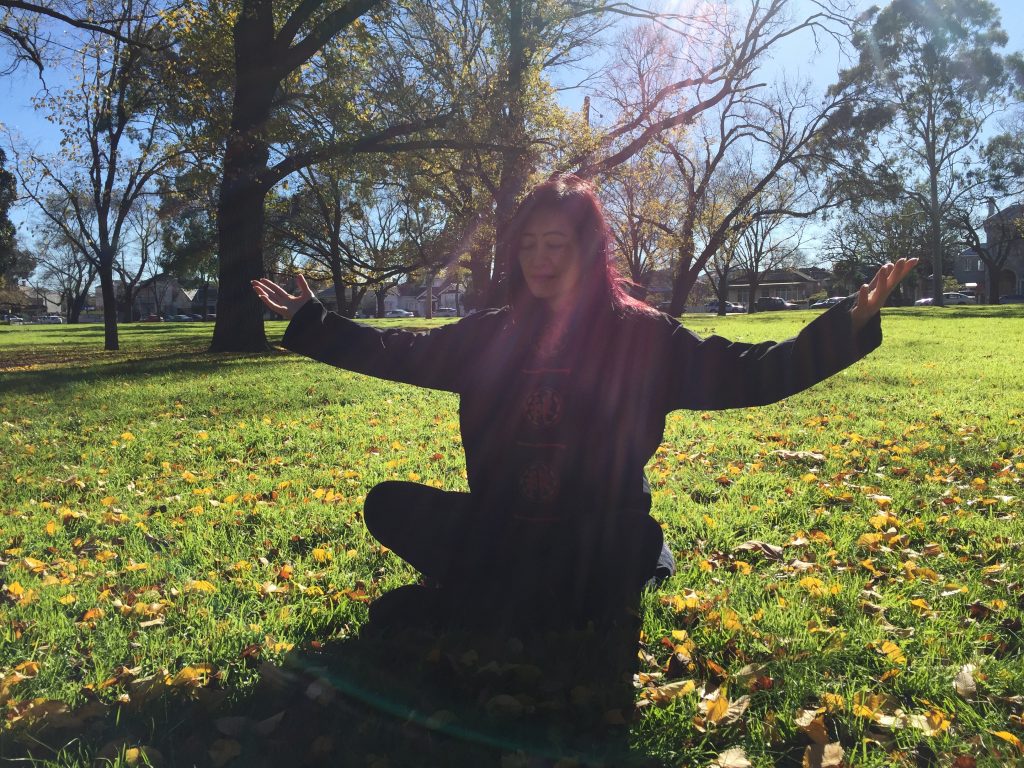Watch a brief video of “What is Qigong – Beginner’s Guide to Qigong” here.
Qigong (Qi Gong/Chi Kung) is the Chinese discipline devoted to development of understanding, awareness and the harmonizing of one’s mind, body, qi (chi) and spirit. It plays a strong part in Chan Buddhism (Zen) and Taoist philosophy, as well as Traditional Chinese Medicine and Chinese Martial Arts.
Qigong has been used extensively in China as part of traditional Chinese medicine, and is included in the curriculum of Chinese Universities.Throughout the world qigong is now recognized as a form of complementary and alternative medicine, with positive effects on diverse ailments.
Qigong practice involves rhythmic breathing, coordinated with slow stylized repetition of fluid movement, and a calm mindful state.
From a philosophical perspective Qigong is believed to help develop human potential, allow access to higher realms of awareness, and awaken one’s true nature.
People practice qigong for many different reasons, including for exercise and recreation, prevention and self-healing, meditation and self-cultivation, and training for martial arts.
As a healing art, Qigong practitioners focus on prevention and self-healing, traditionally viewed as balancing the body’s energy meridians and enhancing the intrinsic capacity of the body to heal.
Watch a brief video of “What is Qigong – Beginner’s Guide to Qigong” here.

